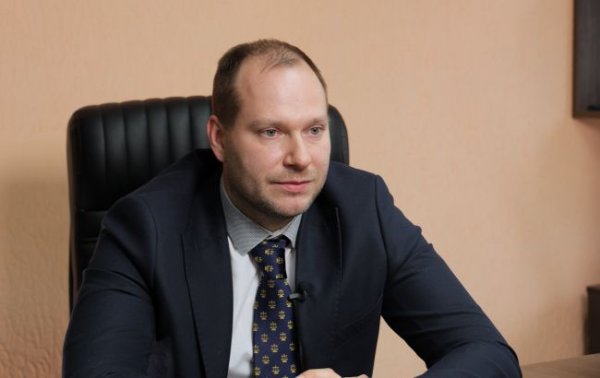
Deputy Chairman of the Irpen City Court Mikhail Odaryuk (photo: RBC-Ukraine) Author: Katerina Goncharova
In Ukraine, more than 170,000 war crimes committed by Russians during the war have been recorded. In fact, there are many more. Ukrainian courts have long been overloaded with such cases, and new ones are received every day. Why it is now extremely difficult to hold the occupiers accountable and how are the investigations into war crimes in Bucha progressing – in an interview with Judge Mikhail Odaryuk for RBC-Ukraine.
When evidence of Russian crimes in Ukraine becomes sufficient, judges issue sentences, but now there is practically no way to execute them. As well as a way to recover funds from the Russian Federation for the catastrophic losses caused by the war. A separate problem is at the global level, because there is currently no interstate mechanism for executing such sentences. And they increasingly say that the idea of a tribunal for the guilty may ultimately never be realized.
There have been many cases in the world where those whose guilt was obvious to everyone avoided responsibility, and we must not allow this to happen in a modern war, says judge and deputy head of the Irpen City Court Mikhail Odaryuk.
In an interview with RBC-Ukraine, he spoke about how crimes committed by Russians are investigated, why criminals avoided responsibility after World War II, and what evidence became decisive in the Bucha cases.
Main:
- Why is it still almost impossible to bring Russian criminals to justice, while many of those guilty after World War II escaped punishment?
- What is the difficulty with using the term “genocide” and why can the UN now do little against an occupying country?
- How the war changed the work of the courts and how employees remained at work as long as it was possible.
- How are the investigations into war crimes committed by Russian soldiers in Bucha and Irpen progressing and why the entire process could take at least 5-7 years.
- What crimes committed by Russians particularly shocked the judge and will a special tribunal for high-ranking Russian officials ever be created?
Why Even Obvious Crimes Are Not Always Punished: Lessons from Nuremberg
– There is much talk now about the fact that it is extremely difficult to punish Russians guilty of crimes in Ukraine at the international level, and over time it will become even more problematic. What needs to happen to make this possible?
– It is necessary to develop an interstate mechanism for the execution of sentences, because even now, in the fourth year of the war, there is none. Currently, Ukraine does not have diplomatic relations with Russia regarding the execution of sentences and court decisions, so the only way that remains for us now is to declare Russian military personnel on the international wanted list so that they are detained in other countries. Only after that is it possible to extradite them to serve their sentences in Ukraine.
The issue of civil claims by victims of crimes committed by Russian military personnel is extremely complex. One possible solution to the problem is compensation for losses at the expense of Russian assets seized by EU countries and the US, or with the help of the Register of Losses for Ukraine. However, at the moment there is no mechanism for compensation of funds directly from the Russian Federation.
And our citizens cannot sue the Russian Federation in the European Court of Human Rights, for example, because the Russian Federation withdrew from the ECHR in the fall of 2022 and refused to recognize its jurisdiction. That is, they did not simply suspend their participation, but withdrew from the ECHR altogether.
However, how will the tribunal act in the future, when it is created? It will not establish the guilt of this or that person. Instead, they will take testimony that we, as an authorized official body, received from victims, from witnesses. They will take testimony regarding the circumstances in which the crime against them was committed by Russian soldiers. They will use this testimony as the basis for their cases.
But I don't think that these crimes will be investigated internationally as genocide. There is an article on unleashing military aggression, its planning and preparation. However, not a single person has been convicted under this article. Even the fascists after World War II – they were all acquitted under this article. Because it was not proven that they had such an idea – to unleash military aggression on one ground or another.
– It all sounds very paradoxical.
– Yes, there was an interesting, revealing case. We were told about an investigation, in particular into the Auschwitz and Oswiecim concentration camps in Poland. During the occupation of Poland, large chemical plants were built next to them, where they also experimented on prisoners. The IG Farben chemical plant openly and officially bought people from the concentration camp to conduct “research” on them. It was a whole large chemical concern.
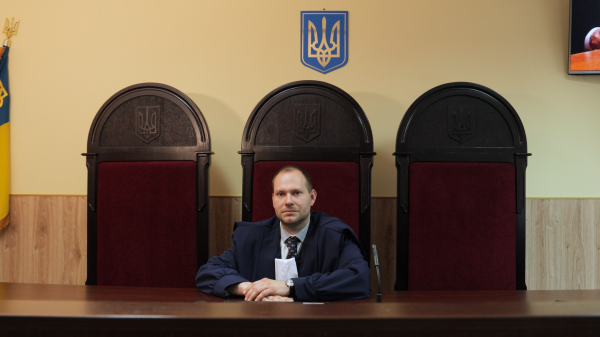
Our citizens cannot sue the Russian Federation in the European Court of Human Rights because the aggressor country has withdrawn from it, says Judge Mikhail Odaryuk
Moreover, they specifically built factories near Auschwitz, actively laid railroad tracks. That is, the enterprises appeared after the opening of the camp, and not the other way around. There are surviving documents where they write: “we want 100 prisoners for some money.” Finally, when the war ended, the directors of these factories began to be tried.
And the maximum term given for these cases was 7 years for the chairman of the plant's board. He was released after two years. Everyone else was given 1, 2, 3 years. Everyone who was charged under the article concerning military aggression was acquitted. And it turned out that they allegedly simply worked at this chemical plant, committed crimes against peace, and that's all.
This plant, by the way, has not been completely closed yet, it is still being liquidated. After the end of the war, it paid the prisoners, if I am not mistaken, about 200 euros each. It is interesting that such large and well-known companies as Bayer, for example, were components of this concern. And the director, who was convicted and released early, after some time became the head of another chemical company in Germany.
You hear this and think: how is that possible, how is it that they didn’t prove guilt? Given that there was an incredible amount of evidence, testimony from people who survived. But in the end, seven years for something like that is nothing at all. I think that this is not really responsibility. The man simply sat in a cell for two years, I suspect, in good conditions. And he just got out, and they even hired him for another job. And someone moved to the supervisory board of some bank. Everyone immediately took high positions: on the board, in management.
On the problems of international law and the role of the UN
– What does this tell you as a specialist? Is there a lack of legal mechanisms, or is the human factor at play?
– This is what we are now seeing in the example of the UN, an organization that can do virtually nothing with Russia. That is why there are doubts that something will eventually be done with regard to Russia. And there are concerns that they will simply be able to avoid responsibility. That neither the generals nor the top officials who made decisions and gave orders to commit crimes in Ukraine will be held accountable.
It is surprising that institutions like the UN do not call this genocide. How can one claim that there is no genocide if Russians openly say on TV that Ukrainians must be exterminated? What is this if not genocide at the state level?
After the Kakhovka hydroelectric power station was blown up, we asked our international experts: “Wait, so what is this if not ecocide?” They said: “It is not a fact that this is ecocide. This needs to be established and proven.” The problem is that there are practically no experts specifically on ecocide who can calculate not only the damage done, but also the possible damage to the environment in the future.
– There are no such experts even in the world as a whole?
– Yes, because there is no such practice at all in the modern period. And in general, you see, Ukraine turned out to be the first country that did not stop legal proceedings and considered war crimes right during the period when martial law was in effect. This has never happened anywhere. The world practice is as follows: martial law or active military actions end somewhere, and only then active hearings of cases begin. But in our country, all this did not stop from the first day of large-scale aggression.
Prisoners of war began to be brought to Kharkov immediately, and measures of restraint began to be chosen for them immediately. The procedure of prisoner exchange, hearings of cases, and presentation of suspicions began immediately. That is, full-fledged investigative actions. This does not happen anywhere, in any other country. This is a world precedent.
How the war affected the work of the courts in Ukraine
– How did it affect the fact that some of the ships stopped working due to military actions and occupation?
– Yes, many judges left the frontline territories. I am currently a seconded judge myself, holding the position of deputy chairman of the court. Two of my colleagues in the Irpen City Court are also seconded judges. One is from the Zaporizhia region, the other is from the Kharkiv region.
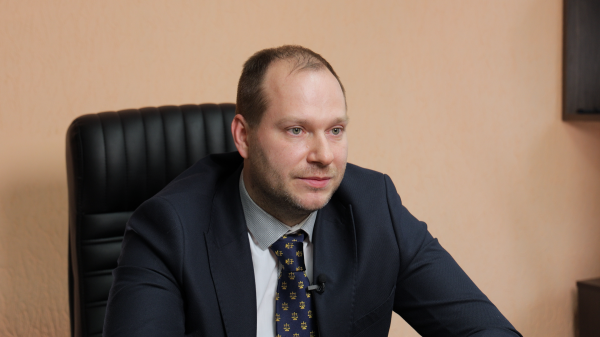
It is necessary to develop an interstate mechanism for the execution of sentences, because it does not exist now, says the expert
These courts have also suspended their activities. And so far, neither they nor the Izyum court where I worked have resumed work. Very expensive repairs, because two bombs fell on the premises in Izyum, a lot of damage. The courtrooms were destroyed, there was theft of what was inside, and now there are practically no items there that we might need for work.
To restore the court's work, a lot of money is needed. There is no such funding now. All the judges who were in the Izyum court have been sent to different courts in different regions of Ukraine.
It is difficult to evacuate the court, like universities and other institutions. We can only accept all this by Ukrainian laws. Some courts in Donetsk Oblast even worked in videoconference mode. Despite the proximity of military actions, some of the staff, as much as they could, were directly in the court – the head of the apparatus, the chancery, the archive.
The task of the judicial branch of power is to ensure that legal proceedings do not stop. The Izyum Court was immediately transferred to the jurisdiction of the Pavlograd Court in Dnipropetrovsk region, and then it was transferred to the Dzerzhinsky Court of the city of Kharkov. We can change jurisdiction, but the location of the court – this is associated with a very large number of questions, including technical ones. Because video conferencing is not always a possible means of conducting legal proceedings. There may be poor internet, and other circumstances.
– And what is the situation with international courts in relation to the Russian Federation? There, the consideration of cases can drag on for many years?
– It may drag on, because international courts usually take a very long time to consider cases. You can have different attitudes to this, but it is actually obvious and understandable, because they have a very large volume of documents, interrogation of a large number of people. It is a very difficult process. But in the end, they issue sentences. As was the case with the MH17 disaster.
It becomes clear why it took so long if you think about these objective circumstances. There was shooting from occupied territory, and the plane also crashed in occupied territory. Trying to prove that it was those people and not others who were shooting is an incredibly difficult process, it is an international level. The Netherlands managed to do it.
“Almost every week and now one or two new cases are coming in”: about the crimes of Russians in Bucha
– Bucha and Irpen are the cities that suffered from Russian crimes among the first in 2022. Are there more such cases here than in some other courts?
– Now the Irpen City Court considers all categories of cases that a court of general jurisdiction can consider, except for economic cases, except for a certain category of administrative cases. And we have a lot of cases that concern specifically war crimes committed by Russians.
Everyone knows that part of the Bucha district was occupied by Russian troops, and after deoccupation in April, the police, the Security Service of Ukraine, and the prosecutor's office began working here. To identify, investigate, and bring to court the crimes that were committed here.
In fact, there were so many cases here that one or two new ones are still being filed in court almost every week. And this is already a separate category, which is considered by the court collectively, because they are generally connected with the shootings of Russian civilian soldiers when they were traveling in columns, in cars or when they were walking. And they were shot, despite the white flags and the words “children”.
– How is the situation with the evidence base for these crimes progressing?
– There are many difficulties with these cases, because many victims or their relatives have gone abroad and it is difficult to find them, difficult to question them again as part of the trial. It is a problem when they do not get in touch. Then it turns out that there is no other evidence, except for some video footage from the cameras, if they were still working, or that someone was filming.
In those days, of course, no examinations were carried out, the people who were shot remained in their cars. This could only be investigated later, when it was found out whether they were killed with a machine gun or a large-caliber weapon or aircraft. There were cases when an air strike was carried out directly on a column, and many people died. Including foreigners.
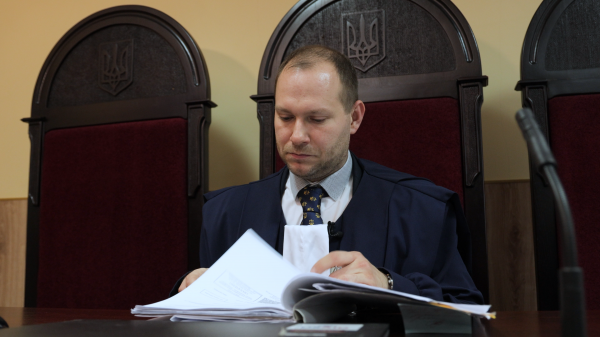
Difficulties in investigations occur, in particular, because many witnesses have left the country and are not in touch.
We have cases where the victim is a German citizen. We are also trying to call him, to find out his position in order to move forward. We need to know whether he has demands on the accused, whether he will have a defense attorney. And according to our laws, a defense attorney cannot be a person from another country except Ukraine. Therefore, he must involve a Ukrainian lawyer who will handle his case. These are technical issues related to international assignments, which is also not done quickly.
– As far as I can see, witnesses of those terrible events in Bucha now very rarely want to share their memories or tell anything.
– That's understandable. As a person who left first the Kharkiv region and then Kharkiv, I wouldn't really like to remember what happened there then. Especially if someone was killed before my eyes, and especially if, God forbid, it was your relative. To go through it again and voice it, to tell it calmly – that's very difficult. That's why I understand these people.
– Have you ever had a case where the testimony of a victim or witness was particularly striking in terms of the scale of the crime committed by Russians?
– I cannot disclose information about the cases I am handling until they are completed. But I had a case that already had a verdict, so I can talk about it openly. There, a man of about 40 years old was tortured. The Russians tortured him, beat him, and did not give him water or food.
We tried for a long time to invite him and listen to him, because he was essentially a key witness there. That is, we really needed him. There were several episodes when during the occupation the Russians took him away, tortured him, and returned him back. And this happened three times. He spoke about it without emotion, even somehow calmly. But it gave us key information.
He told about one of these times, how they were sitting in an armored car, with their hands tied, their eyes were blindfolded. It turned out that there was another person next to him, but he was later shot. That is, he himself remained alive, but there was such death and such inhuman treatment near him.
That is why I am not surprised that many people want to forget this moment, like a bad dream. To forget these first days, when you begin to understand what happened, what could happen, and what crimes are being committed, what incredible aggression is being carried out against Ukraine. You do not want to remember it.
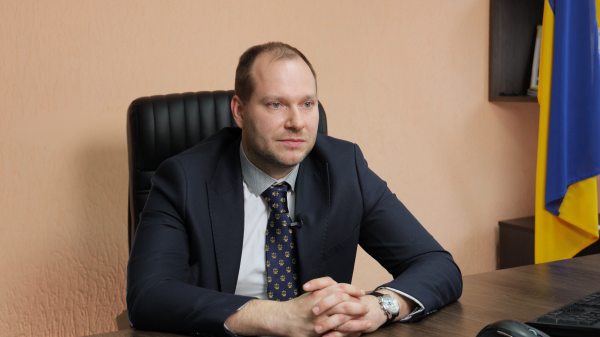
During the occupation of part of the Kiev region, Russian soldiers wore helmets and balaclavas, which made their identification much more difficult, – Mykhailo Odaryuk
– How difficult is it in general to prove the guilt of Russians?
– Taking into account the period of occupation in February-March 2022, the evidence base consists of various elements – testimonies of victims and witnesses, written evidence, video files, as well as evidence obtained using OSINT technologies (open source information).
Difficulties also arise due to the fact that a fairly long period of time has passed between the date of the crime and the completion of the pre-trial investigation and the transfer of the case to court. People tend to forget certain details that are important for the correct resolution of the case, and their emotional state can also affect the perception of the events of which they have become witnesses or victims.
But all of this evidence is of the utmost importance for our work, since it allows us to establish the circumstances of the commission of war crimes by Russian military personnel, to determine whether witnesses and victims are exaggerating or lying, and to confirm that the crimes were committed by Russian soldiers or officers.
Witnesses and victims also participate in investigative actions, the protocols of which are subsequently examined by the court. These may be protocols of identification of persons by photographs or in person, as well as protocols of the investigative experiment. The court examines all evidence provided by the parties to the trial, and on their basis makes a balanced decision on the guilt or innocence of the Russian military man.
– Why might some of them not reach the stage of raising suspicions?
– War crimes are classified as particularly serious crimes, and their list is provided, in particular, in international documents such as the Rome Statute or the Geneva Convention relative to the Protection of Civilian Persons in Time of War. Consequently, the standard of proof is at a very high level.
The investigator and the prosecutor must obtain evidence that confirms reasonable suspicion beyond a reasonable doubt (when the evidence is so convincing that the court has no doubt that the person actually committed the crime – ed .).
During the occupation of part of the Kyiv region, Russian soldiers wore protective gear (helmets, balaclavas), which significantly complicated their identification. It should also not be forgotten that such a large number of criminal proceedings requires significant time and human resources for their investigation.
“It will take at least 5-7 years to investigate and consider all cases”
– How long can the investigation of all these cases drag on? Are we talking about decades?
– As of the end of March 2025, the number of documented war crimes is more than 170 thousand. The war continues, war crimes continue to be committed, and the number of criminal proceedings is only growing. Some cases will not be completed due to the impossibility of identifying the suspect, and this will lead to their closure or suspension.
I have already said that at least one new criminal case on war crimes is submitted to our court every week. Therefore, it is possible to calculate the period of time required to conduct the investigation and subsequently complete the trial of these cases. Given the current workload of the courts, it will take at least 5-7 years to investigate and consider all the cases.
– Are there any sentences that have already been handed down that could become a precedent for other similar cases?
– There is no case law in Ukraine, that is, the courts do not use the sentences of other judges in their work, but only the decisions of the Supreme Court on the application of legal norms. They are taken into account by other courts when considering similar cases. At the same time, both international partners and the National School of Judges constantly conduct trainings, seminars and conferences where they analyze the sentences handed down, determine their strengths and weaknesses, and work on mistakes. Thanks to this, the quality of court decisions is constantly improving.
But in a case where a verdict had already been passed, the victim's testimony was completely unemotional, mundane, but the content of his story had an extremely strong emotional context: he had been tortured three times, and the man who was sitting with him in the armored personnel carrier was killed by Russian soldiers.
The Office of the Prosecutor General constantly reports on the consideration of cases of shooting civilian columns, brutal murders of civilians and their torture in Bucha, Gostomel, Irpen. These cases, which fall under the jurisdiction of the Irpen Court, are considered collegially, since they fall into the category of especially serious crimes. However, it is not yet possible to single out any specific case.
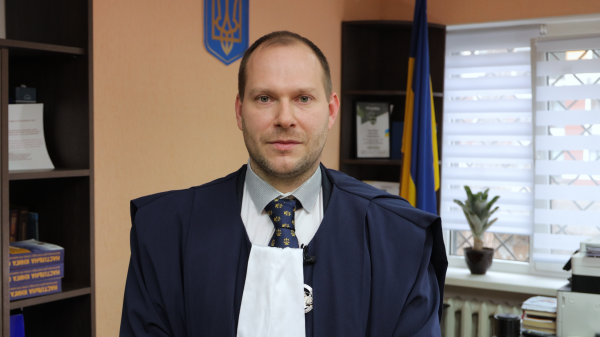
As of the end of March 2025, the number of documented war crimes committed by Russians in Ukraine is more than 170 thousand
Will a war crimes tribunal ever be established?
– Are the chances of creating an international tribunal decreasing, given how the United States is currently behaving in world politics?
– Many of our citizens could not imagine that a full-scale war with the Russian Federation would begin on February 24, 2022. An international tribunal can be created if there is political will in Europe and the United States. Its launch will have serious international consequences, and all participants in the negotiation process are now weighing this possibility. However, there is hope that the tribunal will be created, and we will see the results of its work.
Earlier this year, a special tribunal to prosecute Russian leaders over Ukraine received support from European institutions. A group of international organizations, including the European Union and the Council of Europe, were announced to work together with Ukraine. The tribunal would be a solution because while the Hague court can prosecute Russians for genocide, war crimes, and crimes against humanity, it cannot prosecute Russians for organizing the invasion itself.
– Do you personally believe that at least some of the perpetrators will be brought to justice?
– If there is political will, legal mechanisms for the detention and transfer of convicts to serve their sentences in Ukraine, and the International Tribunal starts working, then I am sure that the guilty will be punished. If this process is finally started at the international level, then I think they will complete it, bring it to its logical conclusion.
– If Russia had lost this war, would it have accelerated the creation of such a mechanism? As it was after the Second World War.
– Here we should understand what Russia's loss of the war means, since each country puts its own vision into this concept. But it is quite possible that Russia's recognition of its defeat in the war would become a catalyst for accelerating the processes of creation, functioning of the Special Tribunal, and the beginning of the functioning of compensation measures for victims of the crimes of Russian aggression.
